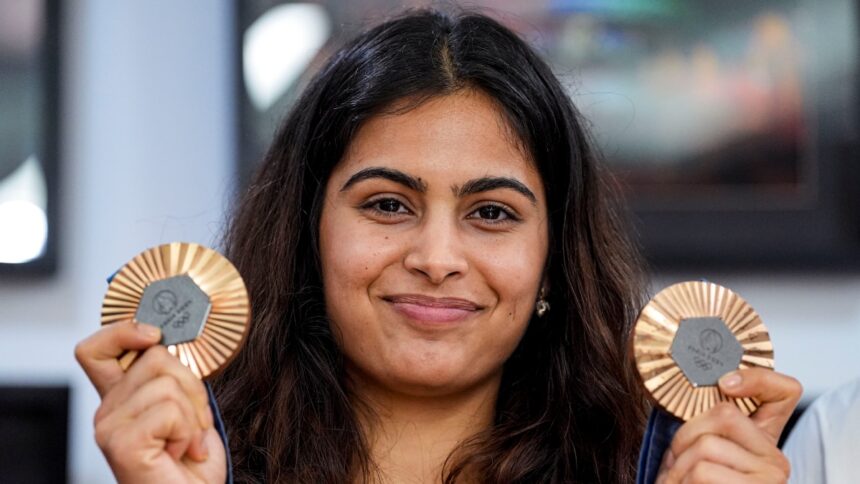Manu Bhaker’s Bronze Medals at the Paris Olympics 2024: A Look at the Replacement Controversy
In a twist of events surrounding the Paris Olympic Games 2024, the excitement of victory for Indian shooter Manu Bhaker has been shadowed by concerns over the quality of the medals awarded. Bhaker, who secured two bronze medals in shooting events, is among a notable group of athletes whose medals have reportedly begun to deteriorate in quality. This blog post aims to illuminate the surrounding details, including the ramifications of this issue and what it means for the athletes moving forward.
Overview of the Issue
Manu Bhaker, celebrated for her historic achievements at the Paris Olympics, has faced an unexpected situation: the bronze medals she earned are reportedly losing their shine and have shown visible signs of discoloration. As part of a larger complaint voiced by various athletes, these damaged medals have raised questions about both their quality and the production process utilized by Monnaie de Paris — the French state mint responsible for creating the awards.
The International Olympic Committee (IOC) has acknowledged the grievance and stated that the medals will be replaced systematically. This assurance brings some comfort, as the seriousness of the issue has not gone unnoticed. The Monnaie de Paris is working diligently to rectify the situation and has already committed to replacing all damaged medals upon athletes’ requests in the coming weeks, particularly in the first quarter of 2025.
Details on the Medal Replacement
Reports indicate that the damaged medals suffered from the loss of their original luster, prompting the French mint to rethink its production processes. The Monnaie de Paris has emphasized that measures are being taken to ensure the durability and quality of the medals. They’ve acknowledged the complaints seriously since the initial exchange requests surfaced in August and have begun modifying their varnishing process to prevent similar issues in future productions.
The total number of medals for the Paris Olympics reached an impressive 5,084 gold, silver, and bronze items, designed by the esteemed luxury jewelry and watch firm Chaumet, which is part of the LVMH conglomerate.
Athletes’ Perspectives and Historical Context
Manu Bhaker’s achievements are remarkable not only for their competitive significance but also for their historical context. By winning two bronze medals — one in individual women’s 10m air pistol and another in the mixed team event alongside Sarabjot Singh — she became the first Indian to secure two medals in a single edition of the Olympics after Independence. Only one other Indian athlete, Norman Pritchard, accomplished this feat in the 1900 Games, where he earned two silvers.
Despite the excitement of these accomplishments, the athletes’ concerns about the quality of their awards underscore an important aspect of sportsmanship: the respect and value associated with the medals as tangible recognition of hard work and dedication.
Conclusion
As the Paris Olympics organizing committee faces scrutiny over the medals awarded, the focus remains on ensuring that athletes like Manu Bhaker receive the recognition they rightfully deserve. The commitment of the international bodies to replace the damaged medals serves as a testament to the importance of maintaining the integrity and quality of Olympic honors. Athletes devote their lives to training, and medals are emblematic of their achievements, making it essential that such issues are addressed promptly and effectively.
As we await the updates on the replacement process and ongoing improvements from the French mint, one thing remains clear: the dedication of athletes like Manu Bhaker, marked by their pursuit of excellence, deserves to be celebrated and honored with medals that reflect their achievements.










